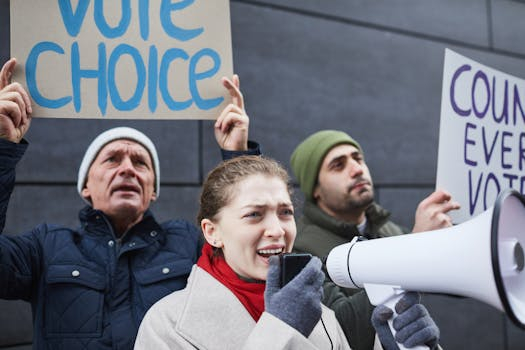Voting Rights Battles in the 21st Century
The right to vote is a fundamental aspect of a democratic society. It allows citizens to have a say in their government, hold elected officials accountable, and shape the future of their communities and countries. However, in the 21st century, the fight for voting rights continues to be a battle for many marginalized communities. From voter ID laws to gerrymandering, there are ongoing battles to suppress the voices of certain groups of people. In this article, we will delve into the key voting rights battles in the 21st century and how they are impacting the state of democracy today.
Voter ID Laws
One of the most controversial voting rights battles in recent years has been around voter ID laws. These laws require voters to present a government-issued ID in order to cast their ballot. Proponents argue that these laws are necessary to prevent voter fraud, while opponents claim they are used to disenfranchise certain communities, such as low-income and minority voters, who may have difficulty obtaining the required IDs.
In 2013, the Supreme Court made a landmark decision in Shelby County v. Holder, which struck down a key provision of the Voting Rights Act of 1965. This provision required certain states, mainly in the South, to get federal approval before making changes to their voting laws. With this protection removed, many of these states have implemented strict voter ID laws, making it more difficult for certain groups to exercise their right to vote.
Gerrymandering
Gerrymandering is the practice of manipulating the boundaries of voting districts to give an advantage to a certain political party or group. This can be done in various ways, such as packing a district with a high concentration of voters from a particular party, or cracking a district by dispersing voters from a particular party across multiple districts. The result is that a party with less overall votes can still win the majority of seats in that state or district.
This practice has been widely used by both major political parties in the United States, but in recent years, it has become more blatant. With the rise of computer technology, politicians have been able to create highly precise and gerrymandered districts, leading to a political system that does not accurately reflect the will of the people. This has a major impact on voting rights, as it effectively silences the voices of certain communities and perpetuates a system of unequal representation.
Voting Rights for Felons
Felon disenfranchisement refers to the practice of denying those with felony convictions the right to vote. This has been a contentious issue, as proponents argue that those who commit crimes should not have a say in the democratic process, while opponents point out that this disproportionately affects communities of color and perpetuates systemic inequality.
In the 21st century, there have been various efforts to restore the voting rights of felons. In 2018, Florida voters passed Amendment 4, which restored the voting rights of over 1.4 million former felons. However, this victory was short-lived as the state legislature passed a law requiring felons to pay all fines and fees related to their convictions before being able to vote again. This has been seen as a blatant attempt to suppress the voices of certain communities and restrict their access to the ballot box.
The Fight for Fair Elections
As we can see, the battles for voting rights in the 21st century are ongoing and multifaceted. Beyond voter ID laws, gerrymandering, and felon disenfranchisement, there are also issues around early voting, polling locations, and more. All of these elements play a part in shaping the democratic process and can have a significant impact on the outcome of elections.
However, despite these challenges, there are also glimmers of hope. In recent years, there has been a growing movement advocating for fair and accessible elections. This includes organizations such as the ACLU and the NAACP, as well as grassroots efforts to mobilize and educate communities about their voting rights. With these efforts, we can continue to push for a more equitable and inclusive voting system in the 21st century.
In Conclusion
The fight for voting rights in the 21st century is far from over. From voter ID laws to gerrymandering and felon disenfranchisement, there are ongoing battles that impact the ability of certain communities to exercise their right to vote. It is crucial that we remain vigilant and continue to advocate for fair and accessible elections, as this is fundamental to a truly democratic society.










